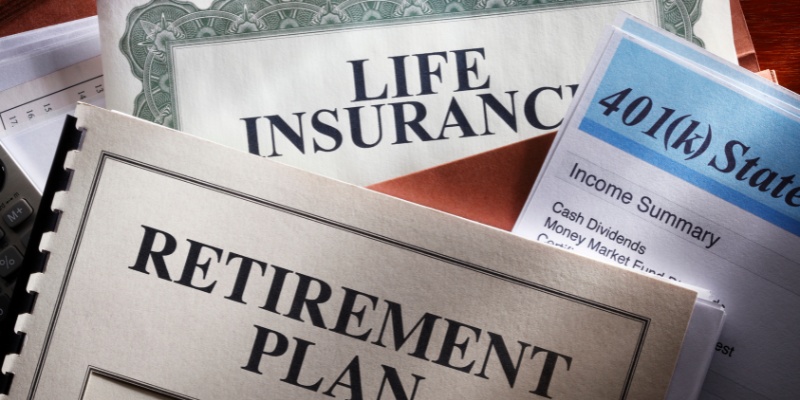Making Your Retirement Dreams a Reality: A Friendly Guide to Financial Security
Nov 14, 2023 By Rick Novak
Let's talk about retirement, something we all think about but might need to speak more about. It's this beautiful time we all look forward to, a time for hobbies, family, and relaxation. But behind these dreams is a critical question: "Will my retirement income be enough?" Let's unravel this together in a way that's as easy as sharing a coffee with a friend.
Understanding Your Retirement Needs
Imagine the retirement you've always dreamed of. Maybe you're lounging on a sunny beach, waves gently lapping at your feet, or spending precious moments with your grandchildren, surrounded by laughter and love. Each of these dreams has its financial implications. It's commonly suggested that you need around 70% of your earnings before retiring to maintain your lifestyle. However, this is just a general guideline – your unique retirement vision could require a different budget. Whether it's more for those beachside resorts or less if you're relishing the comfort of home, it's all about tailoring to your aspirations.

Where's the Money Coming From?
Social Security: It's like the steady, reliable friend we all need. But, how much you get depends on your work history and when you decide to start drawing benefits.
Pension Plans: If you have a pension, lucky you! That's another piece of your financial puzzle sorted.
Savings Accounts (401(k)s and IRAs): These are your savings superheroes. How you've handled them will shape your retirement.
Other Investments: Here's where things get exciting. Stocks, bonds, real estate are the spice in your retirement income stew.
Budgeting: More Fun Than It Sounds
Let's talk budgeting. It's not just about cutting costs; it's about spending smartly on things that matter to you. Will your travel costs go down? Probably. Might your healthcare expenses go up? Yeah, possibly. Let's plan for that.
Healthcare: A Non-Negotiable
Healthcare isn't just a line item - it's a must-plan-for. It's essential to factor in these costs from Medicare to potential long-term care. It's pricey, but planning can save a lot of headaches.
Inflation: The Silent Fun-Spoiler
Inflation is like that sneaky relative who slowly borrows money and forgets to return it. Over time, it can reduce what your money can buy. Investing smartly can help you stay ahead of inflation.
Debt: The Retirement Buzzkill
Carrying debt into retirement is like dragging a heavy suitcase up a hill. Try to shed this burden before you retire. It'll make your journey much smoother.
Investment Strategies for the Golden Years
Diversify, diversify, diversify! Think of your investment portfolio as a buffet. A little bit of everything helps balance risk and reward. As you get closer to retirement, you should choose more of the 'comfort food' investments - less risky, more predictable.
Annuities: Your Financial Safety Net
Annuities can be like a financial safety net, giving you a steady income. But, they're a bit complex - like that high-tech gadget you need to read the manual for.

Lifestyle and Retirement: How Lifestyle Choices Impact Retirement Funds
Navigating the Financial Impact of Retirement Lifestyle Decisions
Retirement brings a newfound freedom to explore, create, and settle in a new place. But each of these lifestyle decisions carries its financial weight. Let's break it down: say you've always dreamed of traveling extensively in retirement. That's a fantastic goal, but factoring the costs of flights, accommodations, and experiences into your retirement budget is essential. Conversely, you're considering simplifying life by downsizing or moving to a lower-cost area. This move can free up significant funds, potentially extending the longevity of your retirement savings.
Hobbies and interests play a significant role, too. Engaging in activities like sailing, high-end cooking classes, or antique collecting can quickly eat into your savings. At the same time, more modest pastimes like hiking, community service, or crafting can enrich your retirement experience without breaking the bank.
Planning for a Realistic Retirement Lifestyle
To ensure your retirement lifestyle aligns with your income:
- Define your dreams.
- Make a list of what you want your retirement to look like, including travel plans, hobbies, and any significant life changes like relocation.
- Attach a cost to each element.
This exercise gives you a tangible idea of the lifestyle your current retirement income can support. It may require making some tough choices or prioritizing certain activities over others, but it will lead to a more realistic and financially secure retirement plan.
Seeking Professional Advice: Benefits of Consulting with a Financial Advisor
Getting in to the complexities of retirement planning can be overwhelming. This is where a financial advisor comes in. They offer expertise in financial planning, providing personalized advice based on your financial goals, situations and risk tolerance. Financial advisors can help identify potential income sources you may have yet to consider, suggest investment strategies to stretch your retirement funds and assist in tax planning to minimize liabilities. Their guidance can be invaluable in avoiding common pitfalls and maximizing your retirement income.
Tailoring Retirement Planning to Individual Needs
Every individual's retirement plan is unique. A financial advisor considers your specific circumstances – like your age, health, family obligations, and personal goals – to tailor a retirement plan that fits you perfectly. They can help you adjust your plan over time, responding to life changes and economic shifts ensuring your retirement plan remains robust and relevant.
Planning for the Unexpected: Importance of Contingency Planning
No matter how well you plan, life can throw unexpected curveballs. Contingency planning is about preparing for these unforeseen circumstances to protect your retirement funds. Which includes having an emergency fund to cover unexpected expenses such as home repairs, healthcare costs, or helping family members in need.
Building Resilience in Retirement Funds
To build resilience in your retirement funds, consider diversifying your investment portfolio to spread risk. Investing in bonds, stocks, and other assets can help mitigate the impact of market volatility. Additionally, exploring options like long-term care insurance can safeguard against significant healthcare expenses that could deplete your savings. Regularly reviewing and adjusting your financial plan, ideally with the help of a financial advisor, ensures that your retirement funds can withstand the challenges that come your way.
Conclusion
In conclusion, assessing whether your retirement income will be sufficient hinges on a careful balance of foresight, planning, and realistic expectations. By understanding your retirement needs, evaluating income sources, and managing expenses prudently, you can confidently navigate your golden years. Remember, retirement planning is not a one-time task but an ongoing process that adapts to life's changes, ensuring a comfortable and secure retirement.

Kelly Walker Nov 16, 2023

Rick Novak Nov 14, 2023

Rick Novak Nov 15, 2023

Rick Novak Nov 15, 2023

Rick Novak Nov 14, 2023

Rick Novak Nov 14, 2023
